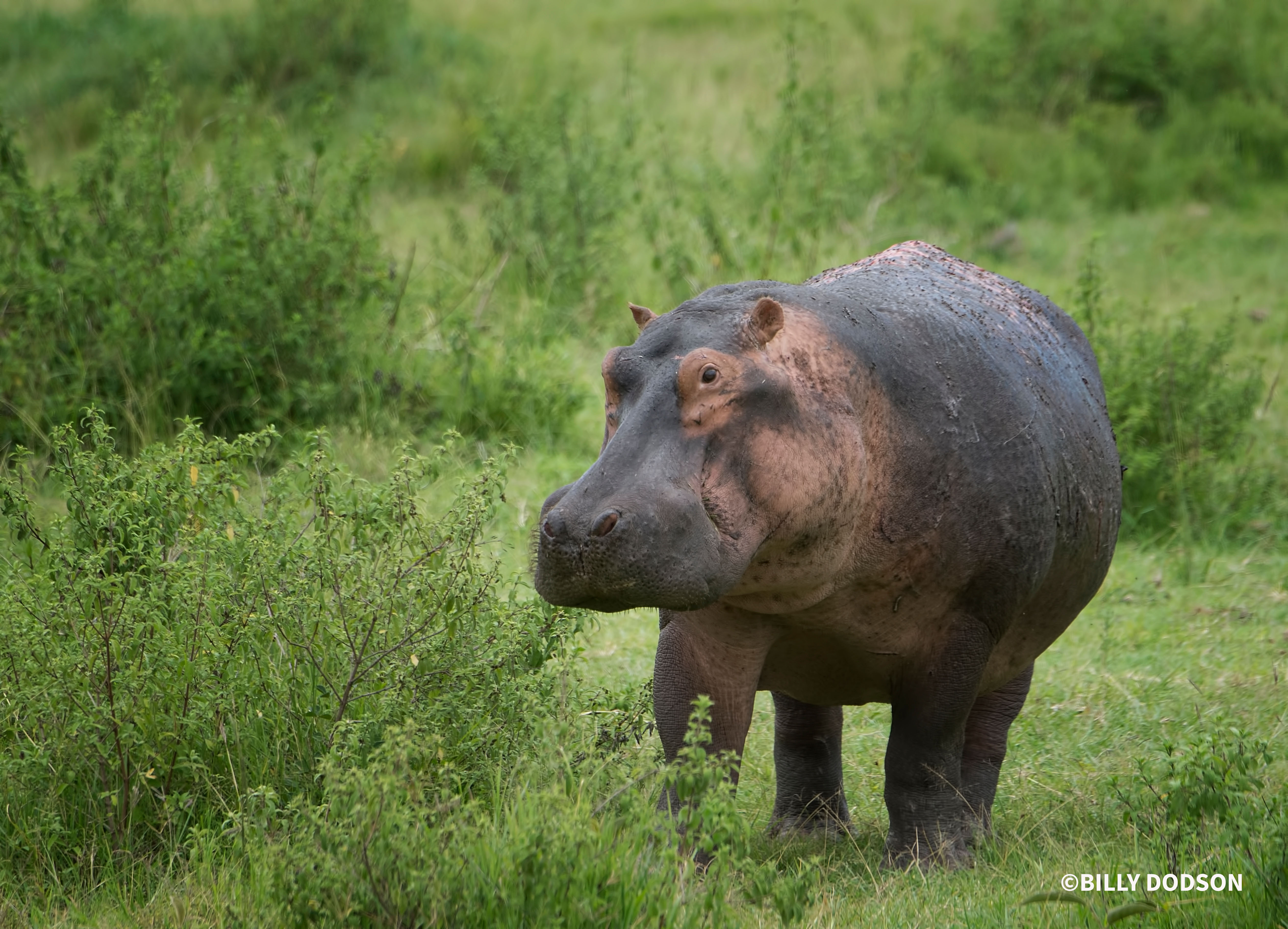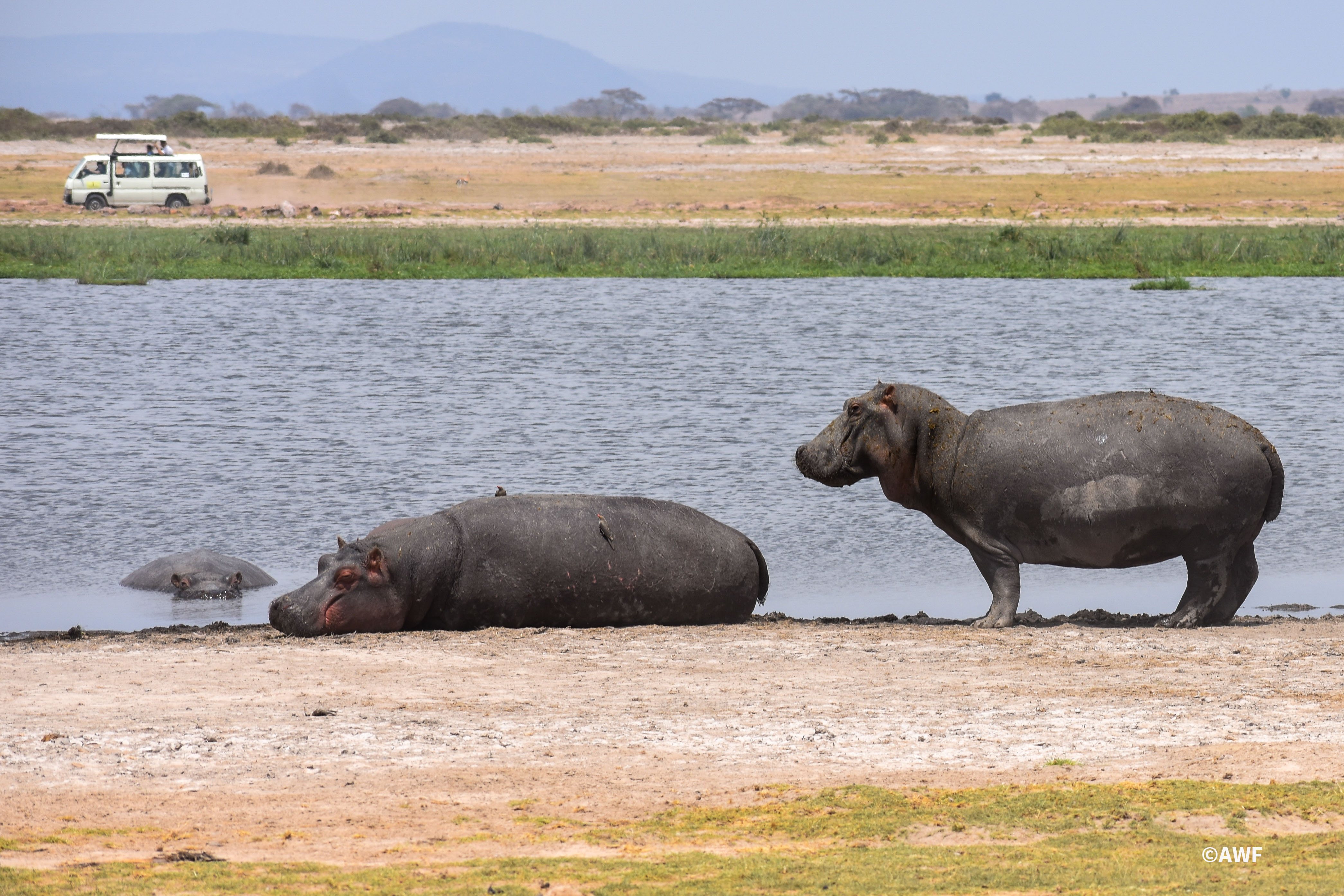World Hippopotamus Day: Protecting Africa's Iconic Giants

Despite their imposing size and reputation for aggression, Hippopotamus face a growing threat from the illegal wildlife trade. Classified as "vulnerable," by the International Union for Conservation of Nature (IUCN) they receive less international protection compared to elephants. This puts them at risk from habitat loss, illegal hunting, and unregulated trade.
While Africa boasted a population of around 157,000 hippos in 2004, recent estimates reveal a concerning decline. The IUCN reports a drop to between 115,000 and 130,000 hippos in the wild. This shift underscores the urgent need for conservation efforts to protect these vulnerable species.
Hippos face an array of threats including climate change, human encroachment, hunting, and habitat loss. A recent study by the IUCN and the Leibniz Institute for Freshwater Ecology and Inland Fisheries shed light on the inadequate protection of freshwater species, including hippos. This underscores the need for heightened conservation efforts to safeguard these vital ecosystems.

Beyond their imposing presence, hippos serve as ecosystem engineers, shaping floodplain habitats and fertilizing floodwaters with their nutrient-rich dung. This vital contribution enhances fish populations and supports diverse aquatic life. Moreover, hippos play a crucial role in transporting silicon, essential for sustaining diatoms - a key component of aquatic food chains.
The African Wildlife Foundation (AWF) collaborates with local authorities to conduct joint surveys and implement conservation strategies. In a groundbreaking transboundary effort in 2022, AWF partnered with Zimbabwe Parks and Wildlife Management Authority (Zimparks) and the Zambia Department of National Parks and Wildlife (DNPW) to conduct a comprehensive hippo survey along the Zambezi River.
This collaborative endeavor aims to assess hippo populations and distribution, providing valuable insights for conservation planning.
“As AWF, we are happy to see this joint hippo survey come to fruition, the survey is important in understanding the hippo population and how it changes over time in order to help conservation players to make better decisions about the animals,” AWF Country Director Olivia Mufute holds.
She adds, “This will also aid Zimbabwe in developing and implementing national action and recovery plans for key species in line with AWF Zimbabwe’s Conservation Strategy Goal number 3 on conserving Zimbabwe’s wildlife in situ (in place) reducing poaching and trafficking as major causes of the decline of key wildlife species.”
On this World Hippo Day, let us celebrate these magnificent creatures and renew our commitment to protecting Africa's iconic giants for generations to come.
Quick Facts about Hippos:
- World Hippopotamus Day is marked on February 15
- Two species of hippos are found in Africa: the common hippo and the pygmy hippopotamus.
- Hippos are the third-largest living land mammal, after elephants and white rhinos.
- Despite their large size, hippos are agile in both water and land.
- Hundreds of hippos are shot each year due to human-wildlife conflict.
- The common hippo population declined more than 95 percent in the Democratic Republic of the Congo in the early 21st century.
- Ivory poaching poses a significant risk to hippos, as their teeth are often traded illegally.
- (AWF) collaborates with local authorities like Zimbabwe Parks and Wildlife Management Authority (Zimparks) to protect hippos, & their ecosystem.